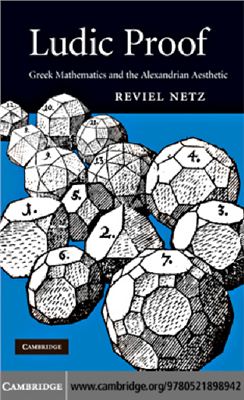Cambridge University Press, 2009. - 272 pages.
This book represents a new departure in science studies: an analysis of a scientific style of writing, situating it within the context of the contemporary style of literature. Its philosophical significance is that it provides a novel way of making sense of the notion of a scientific style. For the first time, the Hellenistic mathematical corpus - one of the most substantial extant for the period - is placed centre-stage in the discussion of Hellenistic culture as a whole. Professor Netz argues that Hellenistic mathematical writings adopt a narrative strategy based on surprise, a compositional form based on a mosaic of apparently unrelated elements, and a caivalesque profusion of detail. He further investigates how such stylistic preferences derive from, and throw light on, the style of Hellenistic poetry. This important book will be welcomed by all scholars of Hellenistic civilization as well as historians of ancient science and Weste mathematics.
This book represents a new departure in science studies: an analysis of a scientific style of writing, situating it within the context of the contemporary style of literature. Its philosophical significance is that it provides a novel way of making sense of the notion of a scientific style. For the first time, the Hellenistic mathematical corpus - one of the most substantial extant for the period - is placed centre-stage in the discussion of Hellenistic culture as a whole. Professor Netz argues that Hellenistic mathematical writings adopt a narrative strategy based on surprise, a compositional form based on a mosaic of apparently unrelated elements, and a caivalesque profusion of detail. He further investigates how such stylistic preferences derive from, and throw light on, the style of Hellenistic poetry. This important book will be welcomed by all scholars of Hellenistic civilization as well as historians of ancient science and Weste mathematics.

